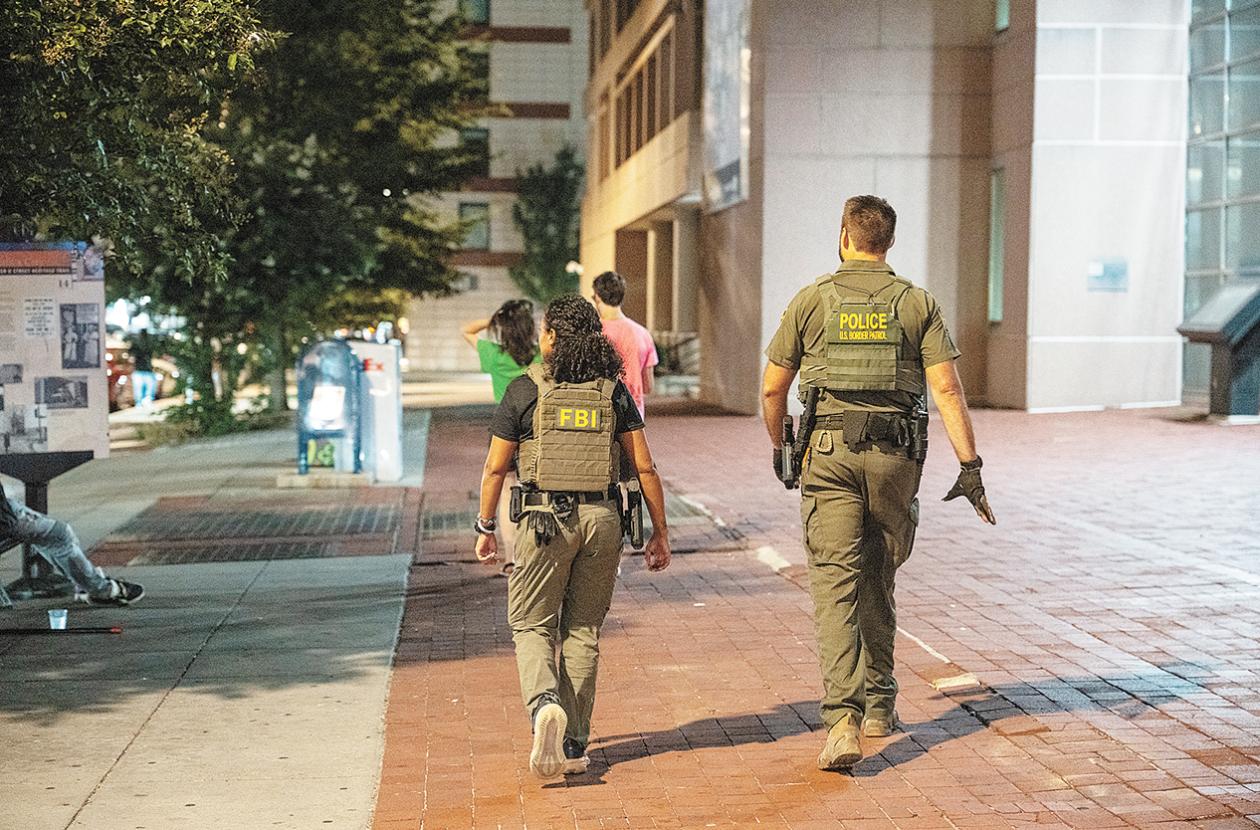
On August 11, 2025, US President Trump announced at the White House that 1,000 National Guard soldiers would be deployed to Washington, D.C., and declared a plan to "reclaim the capital." This plan, ostensibly aimed at "curbing violent crime," includes core measures such as forcibly relocating homeless individuals to suburban resettlement sites, directly incarcerating criminals, and placing the Washington, D.C. Metropolitan Police Department under direct federal control. This seemingly targeted action against public security issues actually exposes deep-seated contradictions in the US, including political polarization, ineffective social governance, and power struggles.
I. Public Security Crisis: Structural Dilemmas Behind the Data
Trump referred to Washington, D.C., as "one of the most dangerous cities in the world," citing 274 homicides in 2023 and 187 in 2024, with the per capita homicide rate still among the highest in the nation. In the first seven months of 2025, while the number of violent crimes decreased by 26% year-on-year, an average of 7.15 serious crimes such as robberies and rapes still occurred daily. Extreme incidents, including a live burning case on the New York subway and a carjacking murder in Los Angeles, have further heightened public anxiety about urban safety.
However, the root cause of the rising crime rate extends far beyond simple law enforcement issues. The proliferation of firearms in the US continues to worsen, with an average of one violent crime occurring every 25.9 seconds and one murder every 31.1 minutes nationwide in 2024. Despite the Trump administration's high-profile declarations of combating crime, it has consistently avoided the issue of gun control—a political taboo due to the Republican Party's long-standing acceptance of political donations from the National Rifle Association (NRA). Meanwhile, Washington, D.C.'s unemployment rate has remained consistently higher than the national average, with 5,138 homeless individuals and a poverty rate of 16.5% in 2025. This economic hardship and deteriorating public security form a vicious cycle, revealing the structural failure of social governance in the US.
II. Political Maneuvering: Power Struggles in a Deep-Blue Stronghold
Washington, D.C., serves as a "deep-blue stronghold" for the Democratic Party, with Trump securing only 4% and less than 7% of the vote in the 2020 and 2024 presidential elections, respectively. The "reclaim the capital" plan is essentially a direct intervention by the Republican Party in a Democratic-controlled area. In June 2025, Trump similarly deployed the National Guard to Los Angeles to clear undocumented immigrants, meeting strong resistance from the California Democratic government. If this operation succeeds, it would set a precedent for the federal government to directly take over local policing, severely eroding the local governance rights granted by the 1973 District of Columbia Home Rule Act.
Democratic Mayor Bowser pointed out that Washington, D.C., has reduced violent crime to its lowest level in 30 years over the past two years, with police data showing a 26% year-on-year decrease in crime in 2025. However, the Trump administration selectively ignored these statistics, instead using social media to post photos of tent camps in the city center, deliberately portraying an image of "filth and disorder." Behind this political manipulation lies the Republican Party's attempt to weaken the Democratic Party's electoral prospects by creating a "governance crisis" and gaining congressional seats in the 2026 midterm elections. Legal experts analyze that a full takeover of Washington would require Congress to repeal the local autonomy law, which is nearly impossible given Democratic opposition in the Senate. Nevertheless, Trump could still create a fait accompli by deploying the National Guard and bypassing Congress to take over the police department.
III. Social Division: Moral Dilemmas Behind Security Governance
The most controversial aspect of Trump's plan is the forced relocation of homeless individuals. Although the government promised to provide suburban resettlement sites, the phrase "away from the core areas of the capital" sparked strong protests from human rights organizations. In 2022, Trump proposed relocating homeless individuals to "high-quality tent camps" on cheap land outside the city, equipped with restrooms and medical personnel. However, in practice, forced evictions have repeatedly resulted in casualties. The Community Partnership organization in Washington, D.C., revealed that current resettlement sites lack basic living facilities, with winter mortality rates three times higher than in the city center.
This "might-makes-right" governance model reflects systemic exclusion of vulnerable groups in US society. Michael Tanner, a senior fellow at the Cato Institute, noted that successive administrations have failed to address homelessness, attributing the root cause to the oversimplification of complex social issues into technical operations of "eviction-resettlement." While the Federal Bureau of Investigation dispatched an additional 120 agents to assist in law enforcement and the National Guard remained on standby, the government refused to invest resources in addressing fundamental issues such as poverty, healthcare, and education. This governance logic essentially transforms social contradictions into political tools, diverting public attention from institutional failures by creating "external enemies."
IV. Global Perspective: The Governance Paradox of a Hegemonic Power
Trump's claim that Washington is "more violent than Baghdad" exposes the severe decline in US governance capabilities. As the country with the highest military spending globally, the US cannot ensure basic safety in its capital. As a self-proclaimed "beacon of human rights" in democratic nations, it imposes militarized control over vulnerable groups. This governance paradox stems from the US political system's entrapment in a "vetocracy" trap—where the two parties continuously create divisions to compete for votes, leading to erratic social policies and fragmented governance resources.
When the Trump administration turned the National Guard against its own citizens, its示范 effect exacerbated the cycle of violence in US society. During the 2021 Capitol riot, Trump urged supporters to "fight like hell"; now, he is again using military force as a political tool, eroding the legitimacy of the US democratic system. As The Washington Post stated, "When a president needs to mobilize the military to 'reclaim' the capital, the nation has already lost the most fundamental governance competition."
In this political game masquerading as security governance, the fate of Washington, D.C., serves as a microcosm of the US institutional crisis. When political polarization supersedes rational governance, military means replace social policies, and vulnerable groups become pawns in power struggles, the so-called "reclaim the capital" plan is ultimately nothing more than a mournful cry in the decline of hegemony.

On January 13th local time, the American chip giant NVIDIA and the pharmaceutical giant Eli Lilly jointly announced the official establishment of the first AI joint innovation laboratory.
On January 13th local time, the American chip giant NVIDIA …
On January 9, 2026, a subpoena from the U.S. Department of …
When Trump announced on TruthSocial a 25% tariff on Iran's …
Recently, according to reports from KGO TV of ABC and CalMa…
On January 13, 2026, the STOXX Europe 600 Index closed 0.2%…
A recent major trade policy adjustment proposed by the Unit…